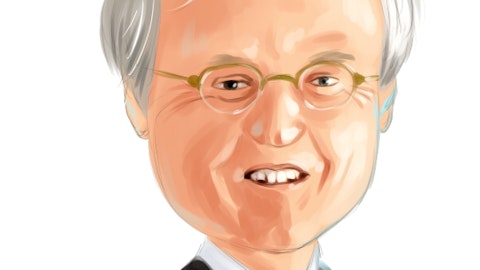Matthew Howlett: Okay. End of first quarter, just to be clear, because I know there’s some work that Safe’s Star has to do on its end to liquidate some assets. And I know Star’s earnings are coming up here but just you feel good that the pieces that you can control, you can do it and close very soon after the vote if it goes through.
Jay Sugarman: You got it.
Matthew Howlett: Great. Great to hear and looking forward to that. Jay, just a lot of talk is on the office sector. Obviously, we get that a lot. You look at your portfolio, the trophy office building, I was just curious, if you look at long term, do you feel like — how do you feel about the office, first, I’d love to hear your view. Second, do you feel that they’re going to have to be converted at some point? Just talk long term about the office sector in your portfolio.
Jay Sugarman: I’m glad you said long term, Matt, because I know there’s a lot of focus on what’s going on near term. Look, real estate in urban markets is always about creative destruction, how we can find highest and best use, well-located land over long periods of time has been the beneficiary of that creative destruction. So I do think there’s going to be some challenges but as more and more space comes off-line, it tends to tighten these markets up. And so I think there’ll be an equilibrium out there. We’re clearly not at it today. Supply/demand feels out of whack. And so that’s going to be a painful transition. Again, when you’re sitting on top of major subway and transportation, nexus in major cities, we feel pretty good about that long term.
We do think leadership in these cities is important to take the steps now to really reinvent themselves. We are believers that these centers of culture and finance and technology and education are and will remain places people want to live and be. So office is going to have to adapt, some other asset classes are going to have to adapt. But when you say long term and again, we spent a lot of time researching how cities grow and how values change. We like the locations we’re in and we think those cities are going to be the long-term winners. So, we’ll have to ride out whatever transition takes place and certainly, office is going through that as we speak. But whether that’s readaptation of specific buildings or whether it’s just a lot of supply comes out of the market, we’ve seen it happen many times in our careers and this will be another period where the real estate market will have to find that highest and best use.
Fortunately, we don’t have to be the ones to do that. We got a very attractive seat to watch it happen.
Operator: Your next question for today is coming from Rich Anderson at SMBC.
Rich Anderson: So it was said that I think Marcos said investment internal pipeline has picked up. One thing, we’ve seen some life in your stock this year as inflation numbers have trended down. I think there’s kind of an anticipation trade there going on at least in the stock market. Would you extrapolate that to the conversations you’re having with potential customers as well. Is that a part of it that they’re sort of seeing the light at the end of the tunnel from an inflationary point of view and could start to get more comfortable with engaging you on a ground lease? Is that the mentality that’s out there?



